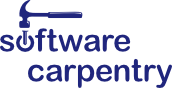Instructor Training: DIBSI – Valley Hall 2071, UC Davis School of Veterinary Medicine
June 19-23, 2017
9:00 am - variable
Trainers: Lex Nederbragt, Sue McClatchy, Karen Word, Titus Brown
This week-long workshop is intended for people interested in teaching, reusing and repurposing the Software Carpentry, Data Carpentry or Analyzing High Throughput Sequencing Data materials. It covers the basics of educational psychology and instructional design, and looks at how to use these ideas in both intensive workshops and regular classes. The workshop is a mix of lectures and hands-on lessons where you practice giving a short lesson using approaches learned and implement some of the teaching techniques which we will discuss. This is training for teaching, not technical training; will be working on development of bioinformatics materials, but will not be teaching that content. This workshop builds upon the Carpentries instructor training, with added content pertaining to the practicalities of organizing workshops with diverse formats and settings, development of genomics lessons, and includes some stages of instructor checkout for those who wish to complete the Carpentries certification. The Carpentries' mission is to help scientists and engineers get more research done in less time and with less pain by teaching them basic lab skills for scientific computing. The constantly revised and updated Carpentries' Instructor Training curriculum is accessible here.
Who: The course is aimed at everyone who is interested in becoming a better teacher. In particular, this training is aimed at those who want to teach technical workshops, develop their own workshop materials, and/or become Software and Data Carpentry instructors and contribute to the Carpentry training materials. You don't currently have to be an instructor or a teacher to attend this workshop, but you do need to be willing and committed to becoming one and to improving your teaching techniques.
Where: 944 Garrod Drive, Davis CA. Get directions with OpenStreetMap or Google Maps.
Requirements: Participants should bring a laptop that is Internet connected and has a functioning browser. If you have it, a device for recording audio and video (mobile phones and laptops are OK) is useful as throughout the two days, we are going to record one another teaching in pairs or threes. It does not have to be high-quality, but it should be good enough that you can understand what someone is saying.
Please also read the Preparation section below. You will also receive some further information before the workshop so please check your email.
All participants are also required to abide by Software Carpentry's Code of Conduct.
Contact: Please email dibsi.training@gmail.com for more information.
Etherpad: http://pad.software-carpentry.org/DIBSI-TTT-Monday.
We will use this Etherpad for chatting, taking notes, and sharing URLs and bits of code.
Schedule
Day 1
| 09:00 | Welcome and introductions |
| 09:30 | Teaching as performance art |
| 10:30 | Coffee break |
| 10:45 | Teaching as a Performance Art – continued |
| 12:00 | Lunch break |
| 13:00 | Novices & Formative Assessment |
| 14:00 | Coffee break |
| 14:15 | Expertise & Memory |
| 15:15 | Performance Revised |
| 16:15 | Wrap-up |
| 16:30 | Close |
Day 2
| 09:00 | Cognitive Load |
| 09:40 | Terms |
| 10:00 | Coffee break |
| 10:15 | Live coding |
| 12:00 | Lunch break |
| 13:00 | Motivation & Demotivation |
| 14:00 | Coffee break |
| 14:15 | Leadership: Responding to Feedback (guest: Tracy Teal) |
| 15:15 | Wrap-up |
| 15:30 | Close |
Day 3
| 09:00 | The Carpentries (guest: Tracy Teal) |
| 10:15 | Coffee break |
| 10:30 | Lessons & Objectives |
| 12:00 | Lunch break |
| 13:00 | Implicit Bias Training (guest: Anna Schneider) |
| 14:30 | Coffee break |
| 14:45 | Workshop Practicalities (with guests) |
| 16:15 | Lesson Contribution with GitHub, Jekyll (guest: Erin Becker) |
| 16:45 | Wrap-up |
| 16:30 | Close |
Day 4
| 09:00 | Genomics lesson design & contribution (guest: Erin Becker) |
| 10:30 | Coffee break |
| 10:45 | Genomics lessons, continued |
| 12:00 | Lunch break |
| 13:00 | Genomics lessons, continued |
| 14:00 | Coffee Break |
| 15:00 | Helping and Helpers |
| 15:15 | Close / Independent Work Time |
Day 5
| 09:00 | Practice Time |
| 10:00 | Coffee break |
| 10:15 | Workshops in Other Settings (w/ guest: Chris Hamm) |
| 12:00 | Lunch break |
| 13:00 | Carpentries Checkout Demos |
| 14:30 | Coffee break |
| 14:45 | Checkout Demos cont'd |
| 16:15 | TBD (based on student interest) |
| 16:45 | Wrap-up |
| 16:30 | Close |
Syllabus
Course material may be found here. Note that we will be using the schedule above, but the links contained in the sample schedule will lead to the relevant content.
Preparation
Reading
Please read these two short papers, which provide a brief overview of some key evidence-based results in teaching:If you are interested in doing more reading, you may enjoy:
Lessons
Please choose *one* episode from the list below and read through it carefully. You will be using your selected episode for several in-class exercises, so be sure you are comfortable with the content.
Next-Generation Sequence Analysis Workshop
Data Carpentry
Software Carpentry

